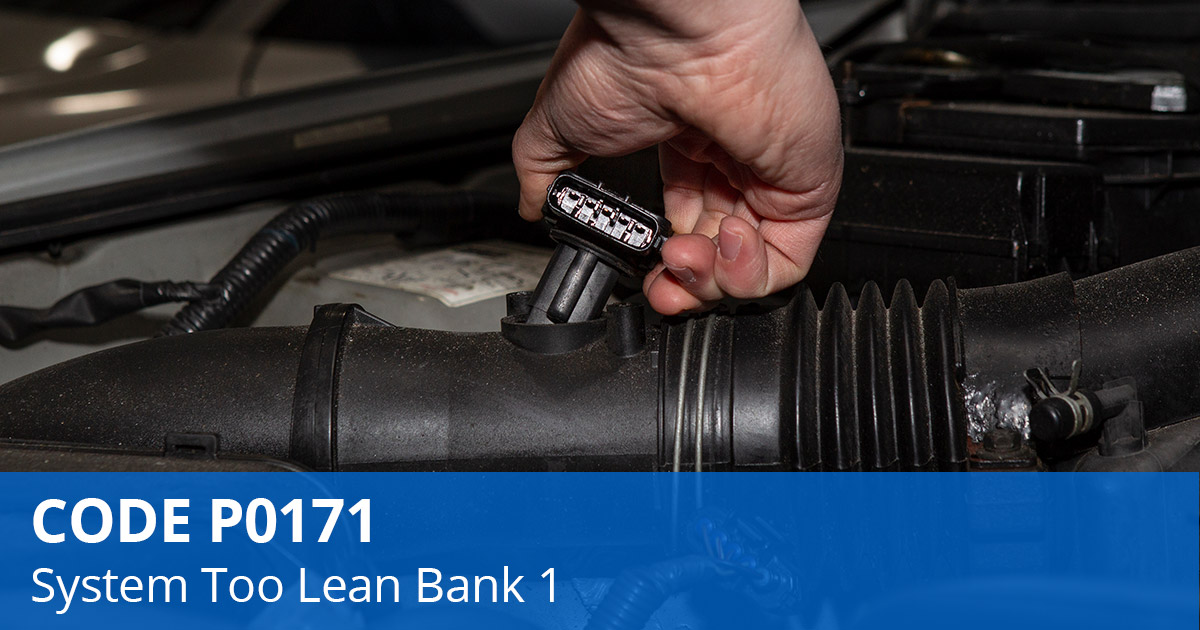Decoding the Mystery: P0171 Chevy Trouble Code Explained
Imagine this: you’re cruising down the highway, enjoying the open road, when suddenly your Chevy’s check engine light illuminates. A sense of dread washes over you. What could be wrong? After a quick trip to the auto parts store, you discover the culprit: the dreaded P0171 trouble code, also known as “System Too Lean (Bank 1).” What does that even mean, and why should you care? Well, buckle up, because we’re about to dive deep into the world of the P0171 code in Chevy vehicles.
The P0171 code indicates that the engine’s computer, the Engine Control Module (ECM), has detected a lean fuel mixture in the first bank of cylinders. A lean mixture means there’s too much air compared to the amount of fuel being delivered to the engine. This seemingly simple imbalance can lead to a cascade of problems, impacting performance, fuel economy, and even engine longevity.
This trouble code stems from the rise of sophisticated engine management systems. As emission regulations tightened, automakers developed intricate systems to control fuel delivery and optimize engine performance. The P0171 code is a product of this evolution, a signal that something within this intricate system is amiss. Understanding this code is crucial for maintaining the health and performance of your Chevy.
The P0171 code isn't exclusive to Chevy, but it’s a common occurrence across various Chevy models. It’s important not to ignore this code. While your car might initially seem to run fine, a persistent lean condition can lead to decreased fuel economy, rough idling, hesitation during acceleration, and even engine damage in severe cases.
Several factors can trigger a P0171 code. Common culprits include a faulty mass airflow sensor (MAF), a vacuum leak, a malfunctioning oxygen sensor, a clogged fuel filter, or even a problem with the fuel injectors themselves. Pinpointing the exact cause requires a systematic diagnostic approach, and sometimes, a bit of detective work.
Diagnosing a P0171 code often involves checking for vacuum leaks, inspecting the MAF sensor, and testing the oxygen sensors. A mechanic might use a scan tool to monitor sensor data and fuel trims to identify the root cause. Sometimes, simply cleaning the MAF sensor can resolve the issue. Other times, replacing a faulty component might be necessary.
Benefits of understanding the P0171 code include improved fuel economy, enhanced engine performance, and prevention of costly repairs. By addressing the underlying issue promptly, you can avoid further damage and keep your Chevy running smoothly.
Advantages and Disadvantages of Understanding P0171
| Advantages | Disadvantages |
|---|---|
| Saves money on potential repairs | Requires some technical knowledge |
| Improves fuel economy | Diagnosis can be time-consuming |
Frequently Asked Questions about P0171 in Chevy Vehicles
Q: What is P0171? A: It indicates a lean fuel mixture in engine bank 1.
Q: What causes P0171? A: Several factors, including vacuum leaks, faulty sensors, or fuel delivery problems.
Q: Can I drive with a P0171 code? A: While possible, it's not recommended as it can lead to further issues.
Q: How do I fix a P0171 code? A: Diagnose the underlying cause and replace or repair the faulty component.
Q: How much does it cost to fix P0171? A: Costs vary depending on the specific cause and repair.
Q: Is P0171 serious? A: Yes, if left unaddressed, it can cause significant engine damage.
Q: How to prevent P0171? A: Regular maintenance, including air filter and fuel filter replacements, can help prevent this code.
Q: Can I fix P0171 myself? A: Some fixes, like cleaning the MAF sensor, can be DIY projects, but others require professional assistance.
Tips and tricks for dealing with a P0171 code include checking for obvious vacuum leaks, inspecting the air intake system for cracks or loose connections, and ensuring the fuel cap is securely tightened. Regular maintenance, such as fuel filter replacements, can also help prevent this issue.
In conclusion, understanding the P0171 Chevy trouble code is crucial for any Chevy owner. This seemingly simple code can reveal underlying issues that, if left unaddressed, can lead to significant problems and costly repairs. By understanding the possible causes, diagnostic procedures, and solutions, you can take proactive steps to keep your Chevy running smoothly and efficiently. Don't let a P0171 code ruin your drive. Take charge, diagnose the problem, and get back on the road with confidence. Regular maintenance, combined with a proactive approach to troubleshooting, is the key to preventing and resolving this common Chevy trouble code. This knowledge empowers you to maintain your vehicle’s health and avoid unnecessary expenses down the road. So, the next time that check engine light flashes, you’ll be equipped with the knowledge to tackle the issue head-on.
Finding solace in stories exploring memorial funeral home obituaries in mobile al
Catching up with your favorite sun tv serials a guide to tamildhool
Hilarious wedding wisdom a brides guide to funny advice

Ford Ranger Codes P0171 And P0174 | Innovate Stamford Now

2000 Ford expedition trouble codes | Innovate Stamford Now

P0171 Check Engine Code | Innovate Stamford Now

Code P0171 System Too Lean Bank 1 | Innovate Stamford Now

trouble code p0171 chevy | Innovate Stamford Now

Diagnostic Trouble Code P0171 | Innovate Stamford Now

P0171 Code Chevy Colorado | Innovate Stamford Now

trouble code p0171 chevy | Innovate Stamford Now

Ford Trouble Codes P0171 P0174 | Innovate Stamford Now

Chevy Engine Code P0101 | Innovate Stamford Now

How To Fix Code P0171 And P0174 | Innovate Stamford Now

Chevy Silverado P0171 and P0174 Trouble Codes | Innovate Stamford Now

Chevy Cruze Check Engine Light Code P0171 | Innovate Stamford Now

Diagnostic Code P0171 And P0174 | Innovate Stamford Now

How To Fix Code P0171 And P0174 | Innovate Stamford Now